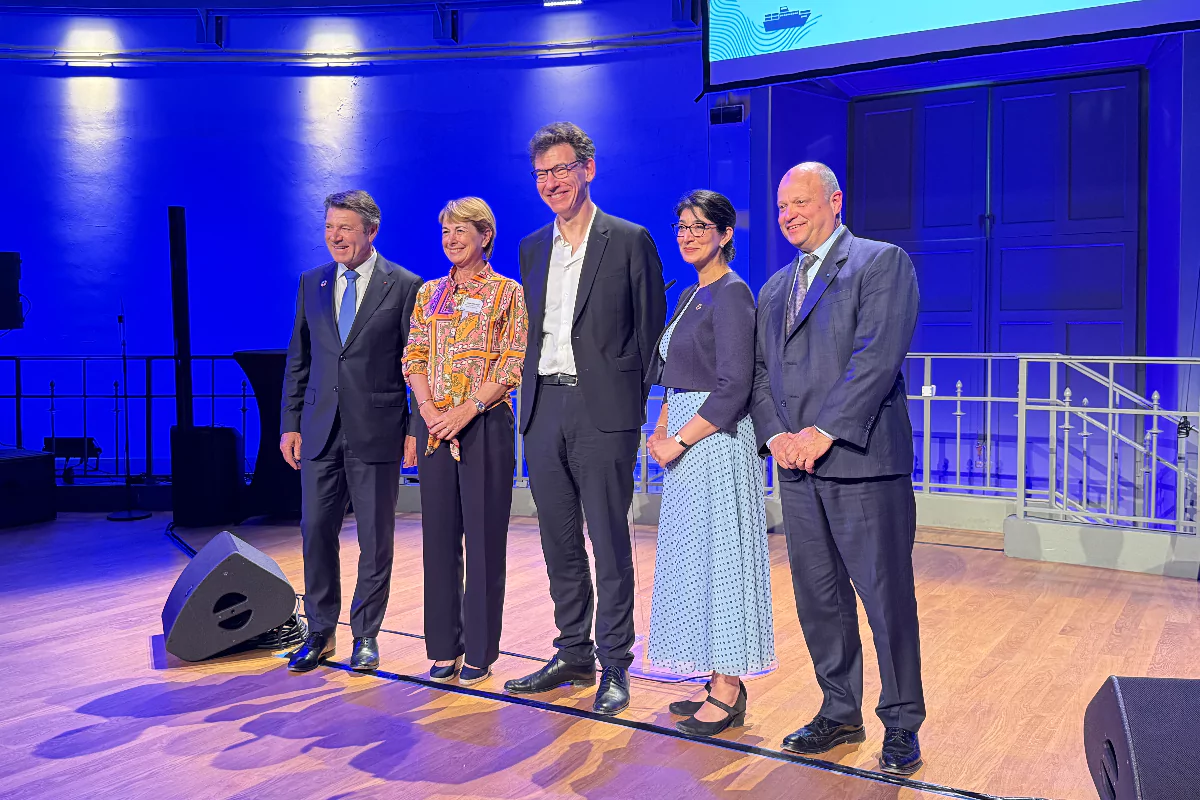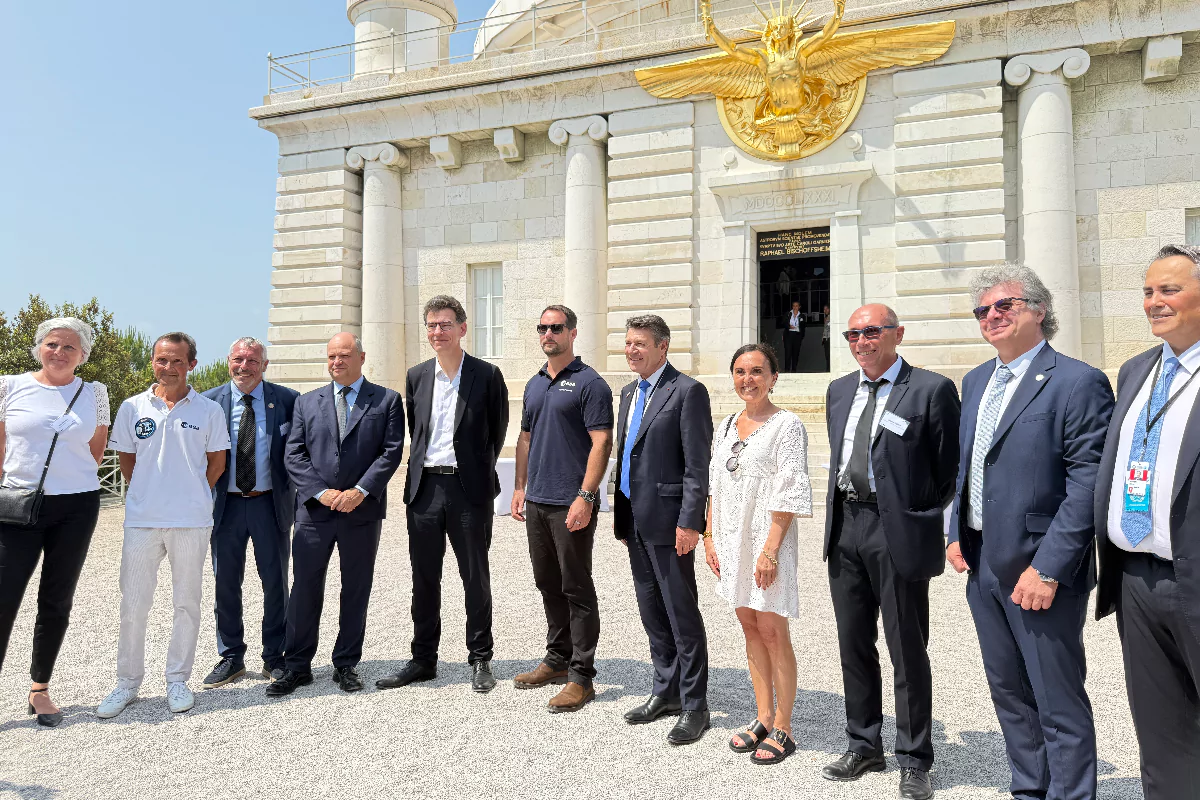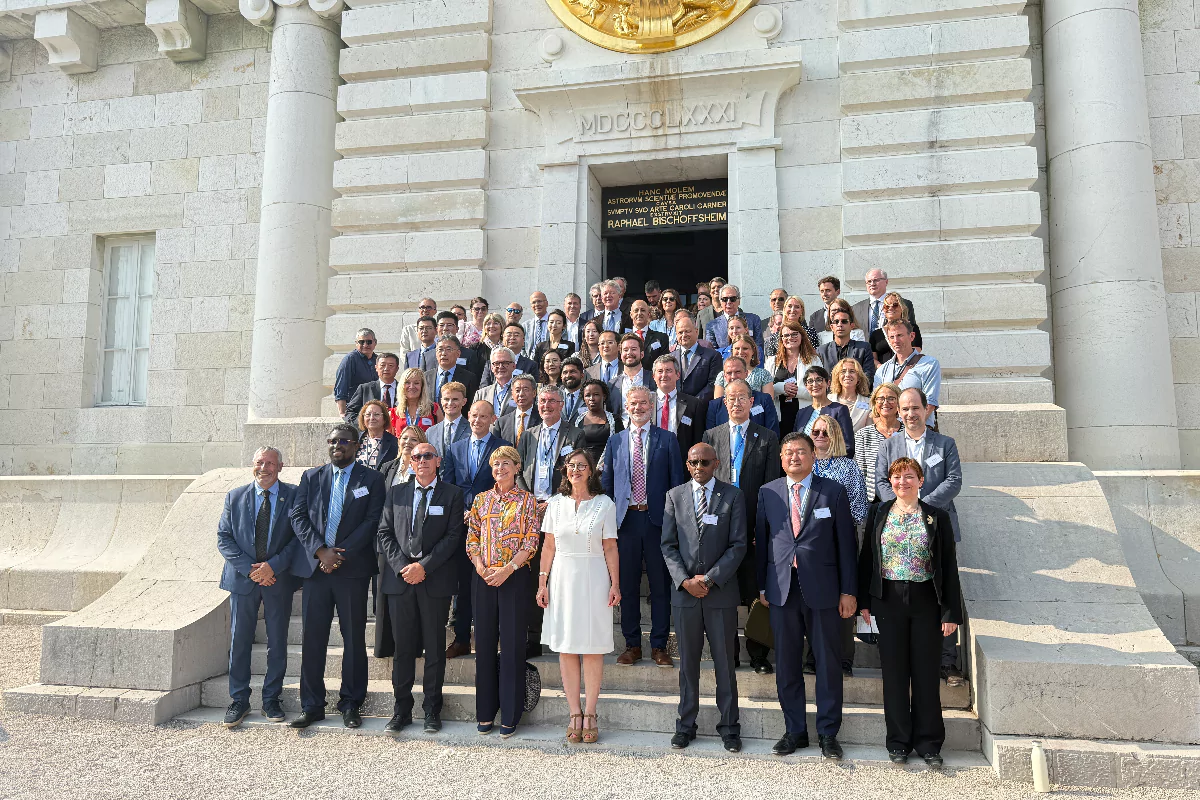A groundbreaking international alliance was officially launched on June 9 in Nice, promising to revolutionise the ocean’s monitoring and protection. Space4Ocean Alliance, led by the French space agency CNES (Centre National d’Études Spatiales), marked its historic debut with an official signing ceremony at the Observatoire de la Côte d’Azur during the third United Nations Ocean Conference (UNOC3).
The launch event, attended by Monaco Life, brought together Philippe Baptiste, President of CNES, European Space Agency astronaut Thomas Pesquet, Monaco’s Minister of Foreign Affairs and Cooperation Isabelle Berro-Amadeï, and Dr. Gaëlle Giesen, a physicist, spatial engineer, and world record holder in deep-sea diving amongst others. Mayor Christian Estrosi hosted the ceremony at the prestigious observatory.
More than 30 international partners signed the Declaration of Interest, establishing a coalition that aims to bridge the gap between space technology and ocean conservation.
Philippe Baptiste highlighted the potential: “From space, we can observe the entire planet. We can track change, monitor trends and install faster than ever. But observation alone is not enough. We also need to process, store and collect the amount of data.”

The beginning of the alliance
The initiative began with international outreach throughout 2024. Early discussions started at the April 2024 Space Symposium in Colorado Springs with NASA, NOAA, JAXA, CSIRO, and ISRO. The initiative gained momentum at the July 2024 Ocean Space Forum in Monaco, followed by presentations to key international bodies including COPUOS and CEOS.
The October 2024 International Astronautical Congress in Milan saw the first draft pledge presented to the space community. A decisive December 2024 meeting of space actors in Paris, hosted by CNES, confirmed expressions of interest and presented additional scientific missions.
The alliance targets eight specific areas: ocean biodiversity protection through improved monitoring of marine protected areas, climate change impacts on the ocean including natural disasters and extreme events, sustainable blue economy initiatives covering fishing and aquaculture, marine and coastal pollution monitoring, coastal zone management, maritime security and surveillance including combating illegal fishing, performance assessment of Earth observation data, and foundation ocean science.
“This alliance really brings together the wide and diverse set of stakeholders, governance, space agencies, research centres, and UN bodies,” Baptiste explained. “Together, we are building a global network, one that connects space science with ocean science.”
Focus on vulnerable nations
Minister Berro-Amadeï highlighted the alliance’s commitment to countries lacking space capabilities: “Many of those who will be affected by climate change and ocean degradation or who are committed to protecting the ocean still do not have access to these technologies. We know that the most vulnerable countries are often those who lack human or financial resources.”
The alliance specifically targets coastal strips monitoring, illegal fishing prevention, marine pollution control, and marine protected area management for these frontline nations. The Declaration explicitly states that actions should “notably respond to the needs of countries that do not have space capabilities and/or enough resources or scientific expertise.”
Aarti Holla-Maini, Director of the United Nations Office for Outer Space Affairs (UNOOSA), provided perspective on space technology’s ocean applications: “The space sector spends a lot of time looking up to the skies and exploring what lies beyond. But today, we look down with a different perspective from space towards our oceans.”
She noted that despite six decades of photographing Earth from space, “we still understand less about the ocean than we do about the moon or even Mars.” Space-based data remains “unmatched in global coverage and consistency” for tracking illegal fishing, plastic pollution, sea level rise, coral bleaching, and harmful algal blooms.”
The alliance’s integration within the UN Ocean Conference framework aims for recognition as an official Special Space Event of UNOC, ensuring recommendations become part of plenary sessions between member states.

An urgent call for action
Dr. Selma Cherchali, CNES’s Earth Observation Programme leader and the alliance’s driving force, highlighted the scientific community’s urgent calls: “We heard an important and urgent call – a call for action now, not tomorrow. This call comes from scientists who urge us to act immediately.”
The alliance addresses multiple gaps in connecting space capabilities to ocean stakeholders, enhancing space data usage, and building operational services based on scientific foundations
The Declaration of Interest will be formally presented to Peter Thompson, the UN Special Envoy for the Ocean, at a special side event on 13th June in the Blue Zone. Baptiste concluded: “We want to make space technologies useful for the ocean and for the people who depend on it. This means delivering also actionable data that can guide decisions to strengthen marine policies and to support sustainable growth.”
See more in Kyriaki Topalidou’s video news reel below…
View this post on Instagram
Monaco Life is produced by a team of real multi-media journalists writing original content. See more in our free newsletter, follow our Podcasts on Spotify, and check us out on Facebook, Instagram, LinkedIn and Tik Tok.
Main photo by Monaco Life
